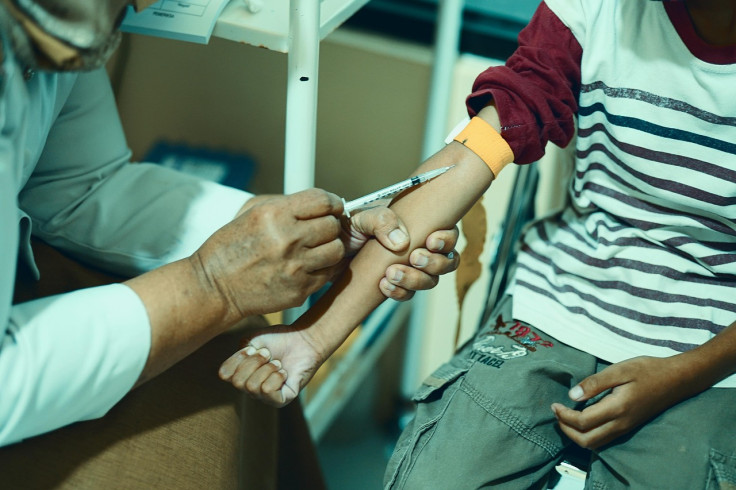Can A Rabies Patient Survive Via Vaccine? Questions Rise As Brit Dies From Light Scratch From A Puppy In Morocco
According to subject matter experts, rabies is almost always preventable if treated in time

A British woman died a painful death from rabies after being lightly scratched by a stray puppy while on holiday in Morocco. The incident has raised urgent questions about vaccine awareness and the risk posed by even minor contact with animals in high-risk regions.
Yvonne Ford, 59, from Barnsley, South Yorkshire, was visiting Morocco in February when she came into brief contact with a puppy. According to her family, the scratch seemed so minor at the time that she thought nothing of it. However, within months, the consequences turned fatal.
Ford became unwell two weeks ago, developing symptoms that worsened rapidly. 'She became ill, starting with a headache, and resulted in her losing her ability to walk, talk, sleep, swallow,' her daughter Robyn Thomson wrote in a Facebook post. 'We never thought something like this could happen to someone we love.'
Ford died on 11 June at the Royal Hallamshire Hospital in Sheffield, where she had been transferred after being diagnosed at Barnsley Hospital. Reports suggest that an inquest into her death opened on Wednesday.
How Dangerous Is Rabies?
Medical experts say rabies is a viral infection that affects the brain and nervous system. Hence, once symptoms appear, it is nearly always fatal. According to the World Health Organisation, 99% of human cases are caused by dog bites or scratches. The virus is most common in Asia and Africa.
Symptoms can take weeks or even months to develop, which makes the disease particularly insidious. Early signs include fever, tingling at the site of exposure, and general discomfort. As the virus progresses, neurological symptoms emerge: hallucinations, agitation, difficulty swallowing, paralysis, and eventually, death.

The NHS and UK Health Security Agency (UKHSA) strongly advise seeking medical help immediately if you're bitten, scratched, or even licked on broken skin or mucous membranes by an animal in a rabies-affected country.
In 2019, a case was reported where a German man died after he contracted a rare infection which was caused by being licked by his dog. Meanwhile, in another case, a woman lost her hands and legs after she was bitten by her puppies, which led to a severe infection.
In Ford's case, close contacts and healthcare workers involved in her care are being monitored, and precautionary vaccinations are offered. However, UKHSA stresses there is no public health risk due to the extremely rare nature of human-to-human rabies transmission.
Could a Vaccine Have Saved Her?
According to subject matter experts, rabies is almost always preventable if treated in time. They say that post-exposure prophylaxis (PEP), a course of rabies vaccines administered promptly after potential exposure, is highly effective at stopping the virus before it reaches the brain.

The tragedy in Ford's case is that the opportunity for such treatment appears to have passed unnoticed. 'She did not think any harm would come of it,' her daughter wrote. It's a stark reminder that even the lightest contact with animals abroad must be taken seriously, especially in countries where rabies is present.
The UKHSA recommends that travellers to high-risk areas consult with their GP or a travel clinic about the rabies vaccine before departure.
Is Survival Ever Possible After Symptoms Begin?
Once rabies symptoms appeared, the disease was considered untreatable and uniformly fatal; however, that changed in 2004 with the introduction of the Milwaukee Protocol.
Developed by Dr. Rodney Willoughby, the method involves placing a patient with rabies symptoms in a medically induced coma while administering antiviral drugs. The idea is to protect the brain or the nervous system from the virus while buying time for the immune system to respond.
The protocol's first success was Jeanna Giese, a 15-year-old in the US who survived symptomatic rabies after being bitten by a bat. She became the first person to recover without a prior vaccine. Since then, a handful of others have reportedly survived using the same method.
However, the method is claimed not to be widely successful, as doctors say that it is still considered experimental and unpredictable. In reality, most cases of rabies still result in death, even with intensive medical care and intervention. Prevention remains the most effective weapon against the virus.
© Copyright IBTimes 2025. All rights reserved.





















